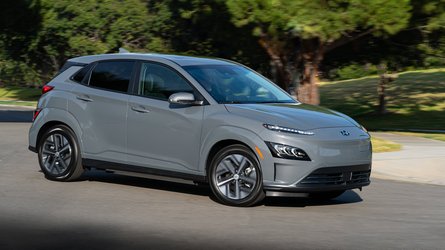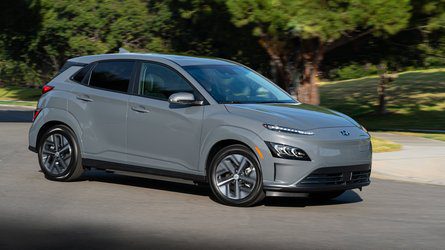The Hyundai Kona Electric is one of the top small all-electric cars on the market, and the 2023 model year does not bring any substantial changes. It is a “carry-over model” with three trim levels (SE, SEL and Limited), all powered by the same 150-kilowatt (kW) motor and 64-kilowatt-hour (kWh) battery (with LG Energy Solution battery cells). The official EPA combined range is 258 miles (415 km), and the average energy consumption (including charging losses) in the combined test cycle is about 120 MPGe: 281 watt-hours per mile (175 Wh/km).
The base price for the 2023 Hyundai Kona Electric is $33,550, with a destination charge of $1,335. Unfortunately, the Inflation Reduction Act of 2022 (IRA) means that the Kona Electric is no longer eligible for the $7,500 federal tax credit, making the effective minimum price (without accounting for any rebates) $34,885. This is a significant increase from the previous year’s effective minimum price of $27,685. This puts the Kona Electric at a disadvantage compared to its main competitors, the Chevrolet Bolt EV/Bolt EUV, which are still eligible for the federal tax credit.
Overall, the 2023 Hyundai Kona Electric is a reliable and efficient electric vehicle with a range of 258 miles (415 km). However, its lack of eligibility for the federal tax credit makes it less attractive than its competitors.
FAQ
Q1: Are electric car batteries recyclable?
A1: Yes, electric car batteries are recyclable.
Q2: Are electric car chargers free?
A2: It depends on the charger and the location. Some electric car chargers are free, while others may require a fee.
Q3: Can electric car batteries be rebuilt?
A3: Yes, electric car batteries can be rebuilt with the right tools and knowledge.











